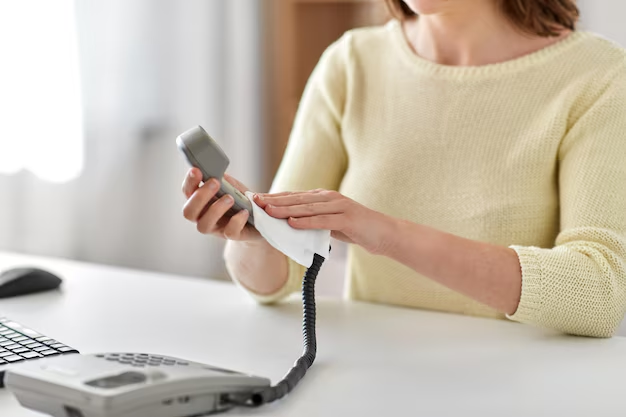Your Guide to Does Medicare Call People
What You Get:
Free Guide
Free, helpful information about Medicare Insurance and related Does Medicare Call People topics.
Helpful Information
Get clear and easy-to-understand details about Does Medicare Call People topics and resources.
Personalized Offers
Answer a few optional questions to receive offers or information related to Medicare Insurance. The survey is optional and not required to access your free guide.
Is Medicare Trying to Reach You? Here's What to Know
If you've recently received a phone call claiming to be from Medicare, you might be wondering whether it's legitimate or just another scam preying on the unsuspecting. Medicare typically does not call people, especially unsolicited. Understanding this can protect you from falling victim to scams and help manage your benefits more effectively.
When Medicare Reaches Out
While Medicare prefers to communicate through mailed notices, there are a few exceptions where they might call:
- Direct Requests: If you've previously contacted Medicare for specific information or assistance, you may receive a call in response.
- Follow-Up On Claims: In rare and specific cases, Medicare might call regarding a claim you have submitted.
Even in these situations, calls are not the norm, and you should remain cautious.
How to Identify a Scam Call
Many scams involve individuals posing as Medicare representatives to gain personal information or commit fraud. Here’s how you can spot them:
- Requesting Sensitive Information: Medicare representatives will never ask for your full Social Security number, credit card details, or bank information over the phone.
- Urgency and Threats: Scammers often use threats or claim urgent consequences, like lost benefits, to pressure you into giving information.
- Unexpected Calls: If you haven't initiated contact with Medicare, be wary of any unsolicited calls you receive.
Protecting Yourself
Your personal information is valuable. Here's how you can safeguard it:
- Hang Up: If a call seems suspicious, simply hang up. You can always call Medicare back using the number on their official website or your Medicare card.
- Report the Scam: Contact Medicare directly or report to the FTC if you suspect a scam call.
- Monitor Your Accounts: Keep a close eye on your Medicare Summary Notices and Explanation of Benefits to spot unauthorized charges.
Resources for Financial Assistance
Understanding your Medicare interactions is one step toward managing health care costs. For broader financial assistance, consider these programs and resources that can be beneficial:
Government Aid Programs
- Medicaid: Offers health coverage for individuals with limited income.
- Low-Income Subsidy (LIS) Program: Assists with Medicare prescription drug plan costs.
Financial Assistance Options
- State Health Insurance Assistance Programs (SHIPs): Provides local, personalized counseling.
- Senior Living Financial Options: Public benefits advisory for living expenses.
Debt Relief and Credit Solutions
- Credit Counseling Services: Available for managing debt, including medical bills.
- Debt Consolidation Plans: Simplify payments and potentially reduce interest rates.
Educational Grants and Opportunities
- Lifelong Learning Accounts (LiLAs): Assists with education and development for career changes.
- Federal Pell Grants: Available for qualifying continuing education pursuits.
These resources not only support your immediate healthcare needs but also provide pathways to broader financial and educational empowerment. Taking control of your Medicare interactions and remaining informed about available aid can pave the way for more secure, informed financial decision-making.
Summary Checklist for Financial Assistance
- 📞 Hang up on suspicious calls
- 🔍 Verify any unusual claim with Medicare directly
- 🌟 Explore Medicaid for additional aid
- 💸 Utilize SHIPs for personalized guidance
- 🏦 Consider debt counseling for financial relief
- 🎓 Check into educational grants for lifelong learning
Staying informed and cautious ensures not only your cybersecurity but also opens doors to essential resources that can optimize your financial well-being.
What You Get:
Free Medicare Insurance Guide
Free, helpful information about Does Medicare Call People and related resources.

Helpful Information
Get clear, easy-to-understand details about Does Medicare Call People topics.

Optional Personalized Offers
Answer a few optional questions to see offers or information related to Medicare Insurance. Participation is not required to get your free guide.


Discover More
- Am I Elgible For Medicare
- Am I Enrolled In Medicare
- Am I Qualified For Medicare
- Are Adult Diapers Covered By Medicare
- Are Chemotherapy Drugs Covered By Medicare Part d
- Are Colonoscopies Covered By Medicare
- Are Covid Tests Covered By Medicare
- Are Cpap Machines Covered By Medicare
- Are Cpap Supplies Covered By Medicare
- Are Dental Implants Covered By Medicare
